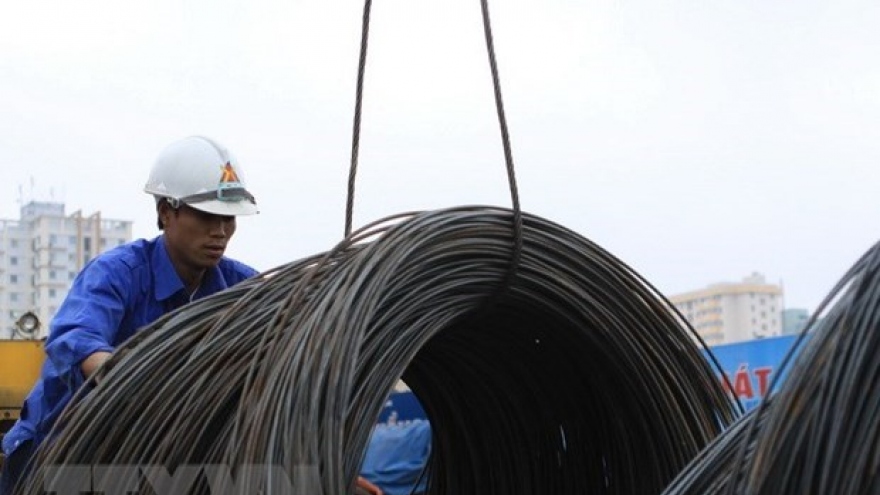Proper strategies needed to limit trade remedy cases
VOV.VN - Vietnamese businesses have been advised not to create a massive influx of steel export products to the US market and instead devise a proper export strategy in order to limit the number of trade remedy cases in the future.
 |
| Photo: Vneconomy |
Previously, only some commodities with high export turnover such as steel and seafood came under investigation. At present, several goods that have a small export turnover have been looked into, putting duties at risk of being levied by foreign markets.
In addition, the threshold in which to investigate a case has become stricter in recent times in terms of gathering information into the origin of products and tax rates.
According to the results of investigations released by the US Department of Commerce (DOC), from February 2015 to April 2019, the export volume of both corrosion-resistant steel and cold-rolled steel from the country to the US surged by 332 per cent and 916 per cent, respectively.
The DOC came to conclusion that ‘made in Vietnam’ steel products have been produced using substrate of Korean or Taiwanese origin in order to circumvent anti-dumping and countervailing duties imposed by the US.
The imposition of these duties has seen a number of domestic businesses come under pressure from export markets, causing significant financial damage to the Vietnamese steel industry.
Nguyen Thanh Trung, Chairman and CEO of Ton Dong A Joint Stock Company, said that in the past, the nation’s steel products had enjoyed boosts in exports to a number of countries, including many in Europe along with the US.
Recently, the US has been taxing Vietnam and continued to draw up policies of restricting the country’s use of materials from China, the Republic of Korea, and Taiwan.
Trung added that the imposition of anti-dumping duties on steel products imported from Vietnam has had an impact on the operations of local steel producers.
A number of domestic steel factories have suffered restrictions on their export activities to EU nations, the US, and Southeast Asia. This is occurring alongside Vietnam being flooded with a huge influx of Chinese imports.
Businesses in general, and Ton Dong A Join Stock Company in particular, have come under pressure due to the duties being levied by foreign markets. As a result, each business should work out a proper strategy in order to cope with the situation which is likely to last for several years, particularly with the escalation of the ongoing US-China trade war.
Amid complicated developments surrounding trade remedies taken by foreign markets, lawyer Nguyen Thanh Ha, Chairman of SBLaw firm, said the decision by the US DOC has resulted from the pressure put by US producers, who saw a sharp rise in the import quantity of steel products from Vietnam to the US.
Ha noted that this followed the application of safeguard measures adopted by countries, adding that the US has the right to launch investigations in order to apply necessary safeguard measures on steel imports from the nation to protect domestic producers according to its law.
Ha pointed out that if the US chooses to slap a high tax on Vietnamese exporters, it will affect the volume of steel imports coming into the US market, causing a rise in the price of products and a fall in the demands of US importers. In turn, this will certainly exert a negative impact on steel producers in Vietnam.
To limit the cases of trade remedies, domestic businesses should meticulously study regulations on anti-dumping duties and US regulations on trade defense before going ahead and exporting their goods to the US market, Ha stated, adding that they should work closely alongside consulting firms from the US in order to gain a better understanding to aid their export activities.
Ha noted that it would be wise if local firms did not create a massive influx of export commodities into the US market and sell their products at low prices. This is because US producers will immediately respond and implement policies that serve to protect their own domestic production.
Ha, therefore, recommends that Vietnamese enterprises acquire information and improve their knowledge of international regulations and laws through associations.
They must formulate appropriate export strategies in order to avoid anti-dumping duties and other trade remedies imposed by the US, he stressed.


